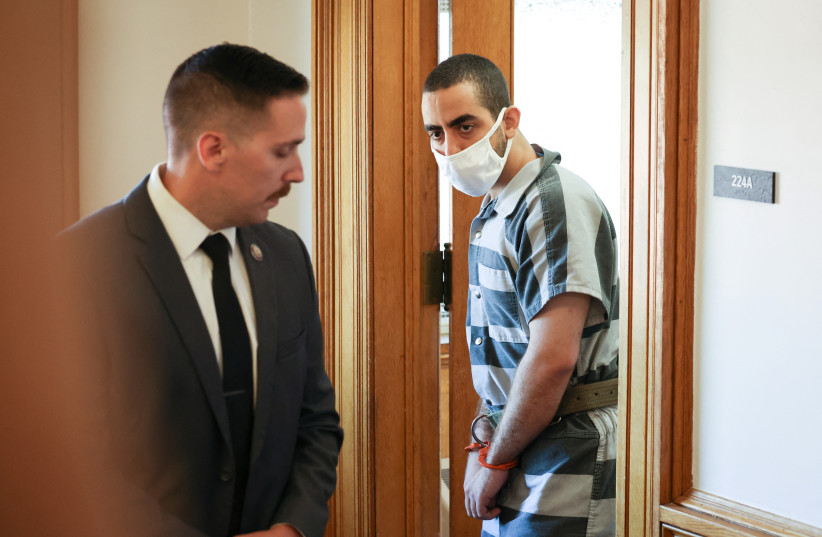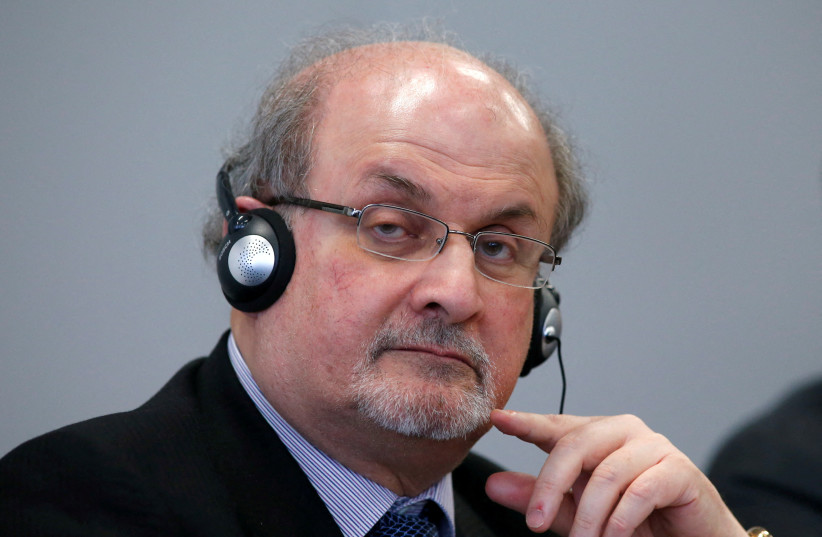The stabbing of author Salman Rushdie was “a crime that Islam does not accept,” Muslim World League Secretary-General Dr. Muhammad bin Abdul Karim Al-Issa said on Sunday in an interview with Saudi Arabian news outlet Arab News.
“Islam is against violence and can never admit any method of violence. Religious and intellectual issues, including phrases that may read in full or partly as offensive, cannot never be dealt with in these violent ways,” Al-Issa said at the 43rd “Meeting of Friendship Between People” interreligious dialogue conference in Rimini, Italy. “There are texts in the Islamic religion that are opposed to violence. And those texts are explicit.”
“Islam is against violence and can never admit any method of violence. Religious and intellectual issues, including phrases that may read in full or partly as offensive, cannot never be dealt with in these violent ways.”
Muslim World League Secretary-General Dr. Muhammad bin Abdul Karim al-Issa
Al-Issa is not only the head of the Muslim World League, but also the president of the International Islamic Halal Organization and the former Saudi Justice Minister. Because of his standing in the Muslim world, American political figures praised the importance of his statements on the attack on Rushdie, which was motivated by Islamic extremism.
The 75-year-old Indian-born author was set to deliver a lecture on artistic freedom at the Chautauqua Institution nearly two weeks ago when he was repeatedly stabbed by 24-year-old Hadi Matar.

An initial law enforcement review of Matar’s social media accounts showed he was sympathetic to Shi’ite extremism and Iran’s Islamic Revolutionary Guard Corps (IRGC), although no definitive links had been found.
Rushdie, who was born into a Muslim Kashmiri family in Bombay, now Mumbai, before moving to Britain, has long faced death threats for The Satanic Verses; the book was viewed by some Muslims as containing blasphemous passages. It was banned in many countries with large Muslim populations.
In 1989, Ayatollah Ruhollah Khomeini, then Iran’s supreme leader, pronounced a fatwa, or religious edict, calling on Muslims to kill the author and anyone involved in the book’s publication for blasphemy. Hitoshi Igarashi, the Japanese translator of the novel, was stabbed to death in 1991 in a case that remains unsolved.

What have been <a href="https://www.jpost.com/breaking-news/article-714646" target="_blank" rel="">the reactions</a>?
This is “an incredibly important statement and a sign of seismic shifts across the Arab world,” said US Senator Ted Cruz on Monday, adding that he was “heartened to see this unequivocal condemnation of the terrorist attack on Rushdie.”
Former US secretary of state Mike Pompeo wrote that Al-Issa’s comments were “good – human rights such as religious liberty and free speech are universal.”
The Simon Wiesenthal Center said that it hoped the Muslim World League secretary-general’s remarks would lead to other Muslim leaders following suit.
Al-Issa called for interfaith dialogue, telling Arab News that it “eliminates all misunderstandings and clarifies the truths both within and outside the Islamic world, both for Muslims and non-Muslims. Dialogue is the language of the reasonable, of the wise. If everyone practices it, we all get close, and this approach takes away the fears of other people.”
He also stressed to Arab News the necessity for respect for Muslims worldwide, hoping for them and all minorities to be successfully integrated and for governments to respect their rights.
